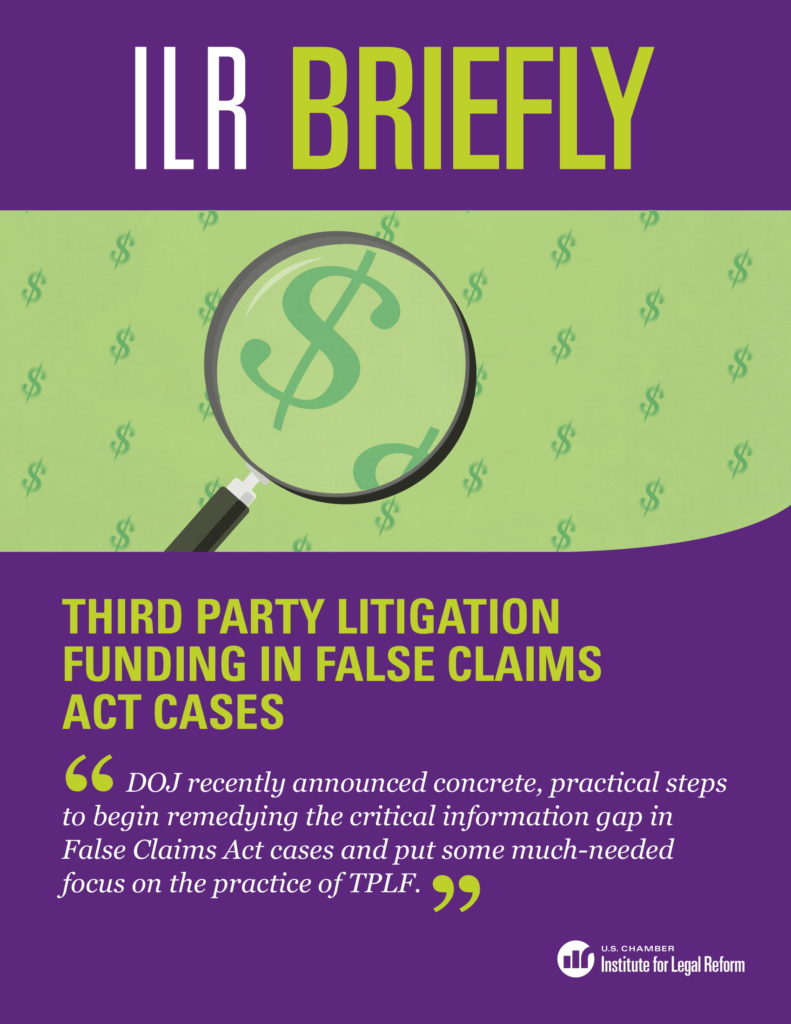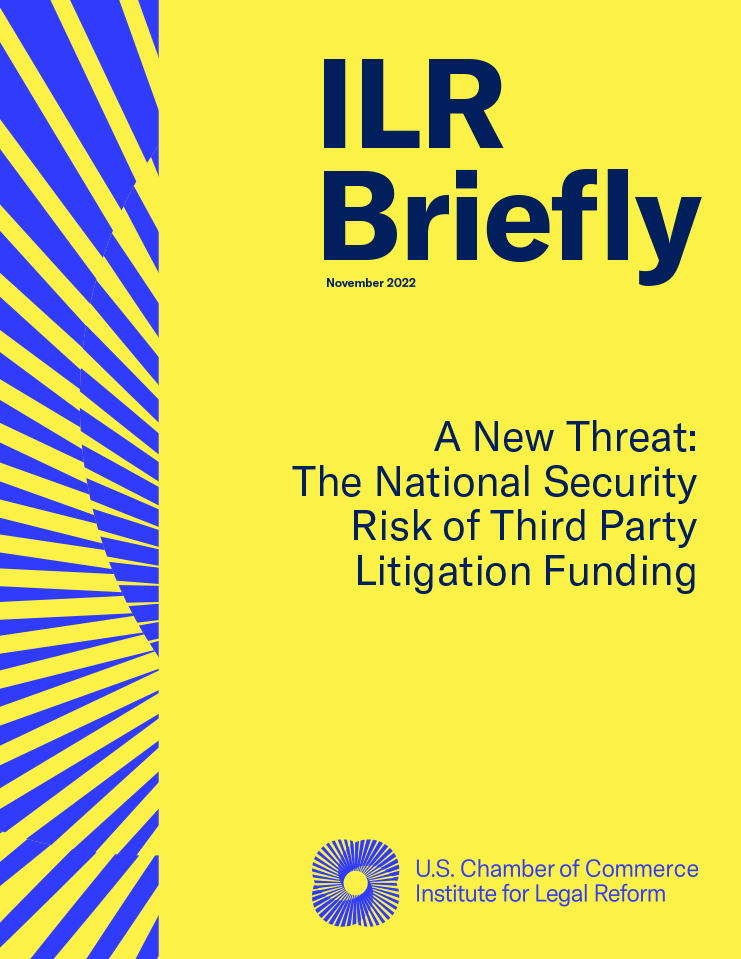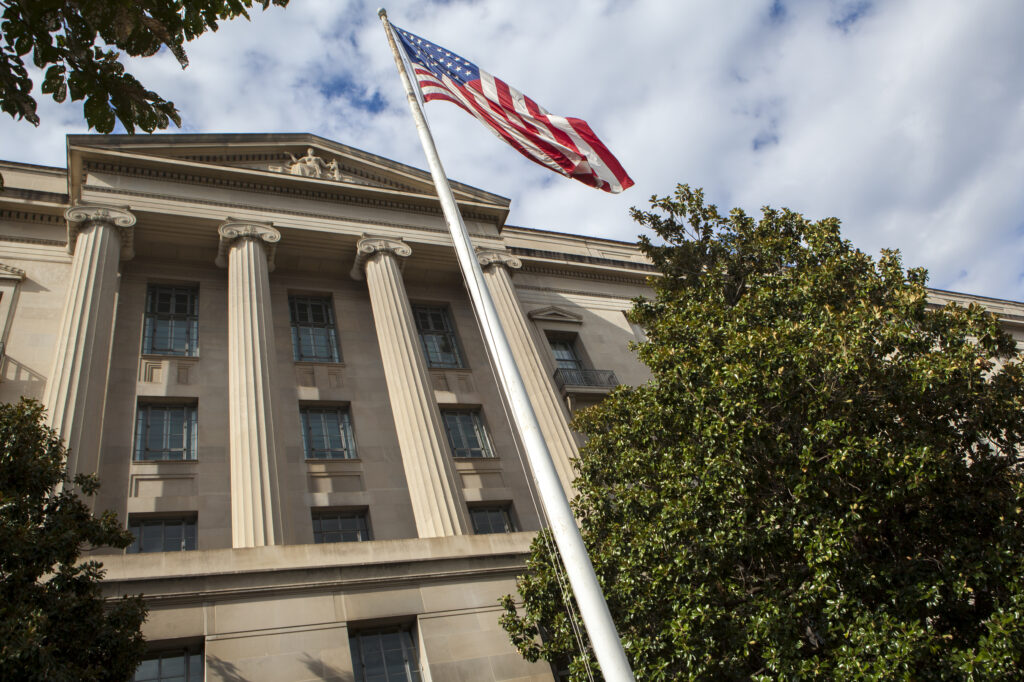As people both in and out of government know, third party litigation funding (TPLF) has issues. TPLF allows outside funders to invest in lawsuits in exchange for a cut of any settlement or award. The potential ethical issues are obvious. For example, since funders are not required to disclose their involvement in a lawsuit, the plaintiffs, defendants, and sometimes the judge overseeing the case may not know there are funders invested in the outcome of the case. That they are, in essence, betting on it.
But if you thought this industry couldn’t get any more problematic, you’ve got another thing coming. Funders are investing in lawsuits brought in the name of the United States without disclosing their involvement to the government, potentially undermining the public interest.
A recent article in the American Bar Association’s Public Contract Law Journal documents this troubling new development in TPLF and what the federal government should do to mitigate the harm this practice might cause to its own interests. Authored by Bob Huffman and Robert Salcido, Blowing the Whistle on Qui Tam Suits and Third Party Litigation Funding: The Case for Disclosure to the Department of Justice documents the relatively new practice of third party funders investing in qui tam False Claims Act (FCA) lawsuits.
FCA litigation allows a private party (the relator) to sue a company on behalf of the U.S. government and (in theory) to advance the government’s interests. When a relator files a lawsuit in the name of the U.S., it is required to notify the Department of Justice (DOJ). The DOJ then decides what to do with the case. For example, the DOJ can intervene in the lawsuit, ask the court to dismiss the case, or let the relator proceed with the litigation.
Blowing the Whistle notes that no such notification requirement exists when funders invest in a qui tam. Neither the relator nor the funder has a legal obligation to reveal the funder’s presence to any party in the litigation, including the federal government, which is the real party in interest.
This is a problem because when a funder enters a qui tam FCA suit, there is the potential for conflicts of interest on the part of the relator. The relator may be contractually obligated by the funding agreement to serve the funder’s interests before those of the government—all while the U.S. government remains unaware of the relator’s conflicting contractual obligation.
As Blowing the Whistle documents, the FCA does not allow the relator to pursue its interests in a way that does not align with the government’s interest. This problematic possibility makes the current, secretive model of TPLF in qui tam FCAs untenable. Moreover, the article notes that it could jeopardize the viability of the FCA itself since the constitutionality of the statute rests on the premise that the government can still exercise adequate control over a relator-driven qui tam lawsuit. But how can the government do that if it has no idea that a third party is really calling the shots?
Luckily for the U.S. taxpayer, DOJ has taken note. Blowing the Whistle cites a June 2020 speech from Ethan Davis, former acting head of DOJ’s Civil Division, who noted that DOJ “had an interest in knowing who is behind” qui tam suits. In his speech, Davis revealed that the DOJ has instructed Civil Division attorneys to ask a series of basic questions about third party funders in interviews with relators.
According to Davis, DOJ wants to know whether a funder is involved in a qui tam action. It also wants to know if the relator has shared any information with the funder about the case, whether the relator has a written funding agreement, and whether that agreement allows the funder to exercise any control over litigation or settlement decisions.
Huffman and Salcido describe this as a “salutary development,” and this blog is heartily in agreement. The DOJ should continue to ask these questions systematically to ensure that the government’s interest is truly being advanced, and not compromised, in FCA litigation. And as the article points out, DOJ arguably has a constitutional duty to ask these questions. If it doesn’t, there is simply no way to tell whether a funder is influencing a third party funded qui tam action in a manner that colors outside the lines of the federal False Claims Act.
ILR applauds this initiative, and we urge DOJ to continue asking their questions. As Blowing the Whistle concludes, “[w]hen it comes to an action brought in the government’s name, the DOJ should not be forced to fly blind.”



